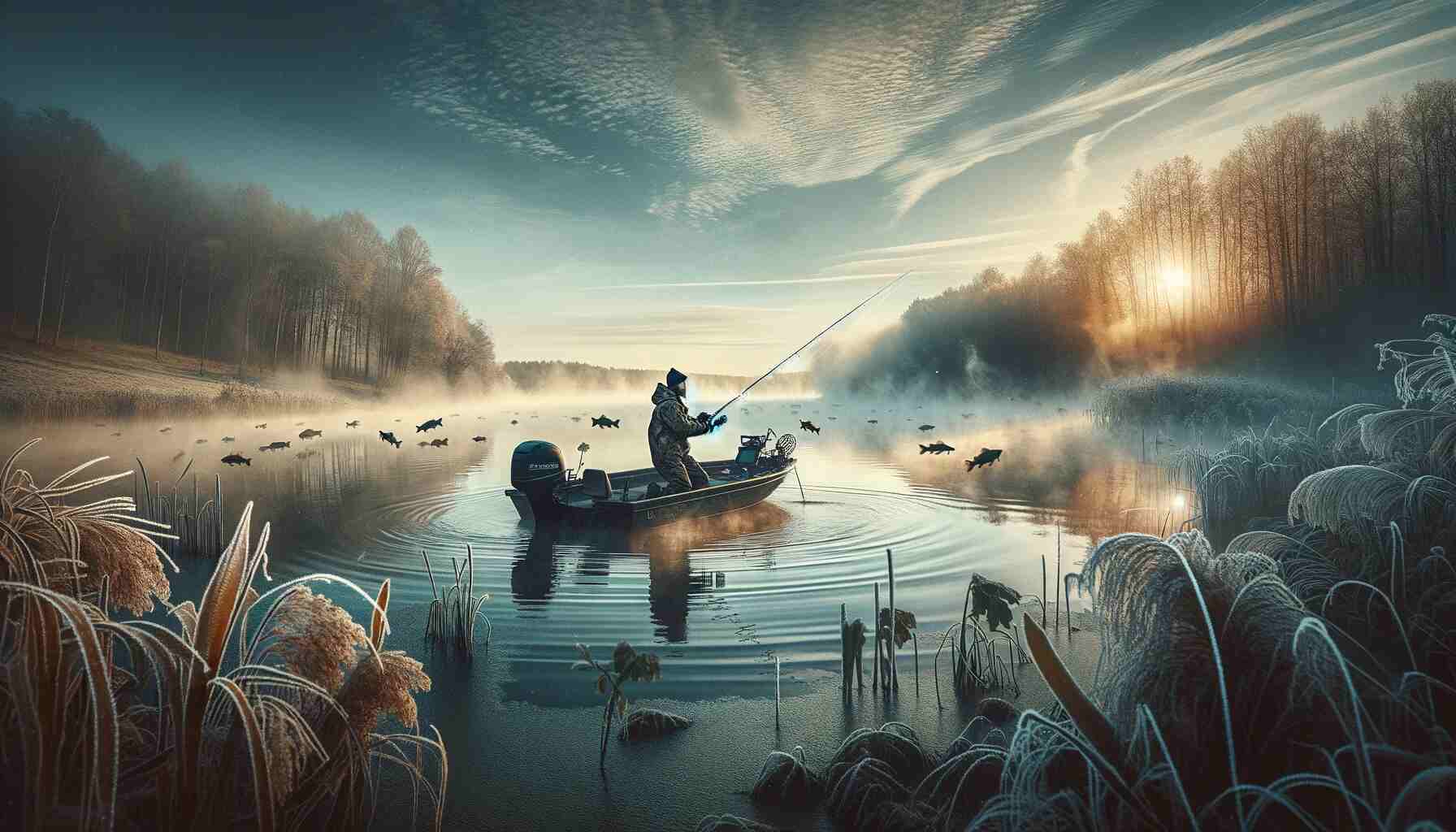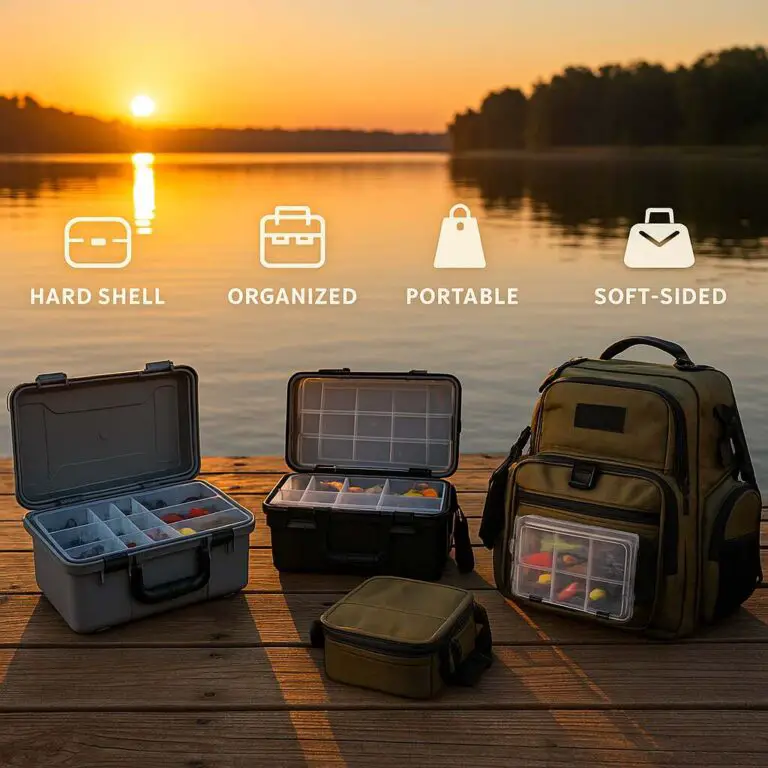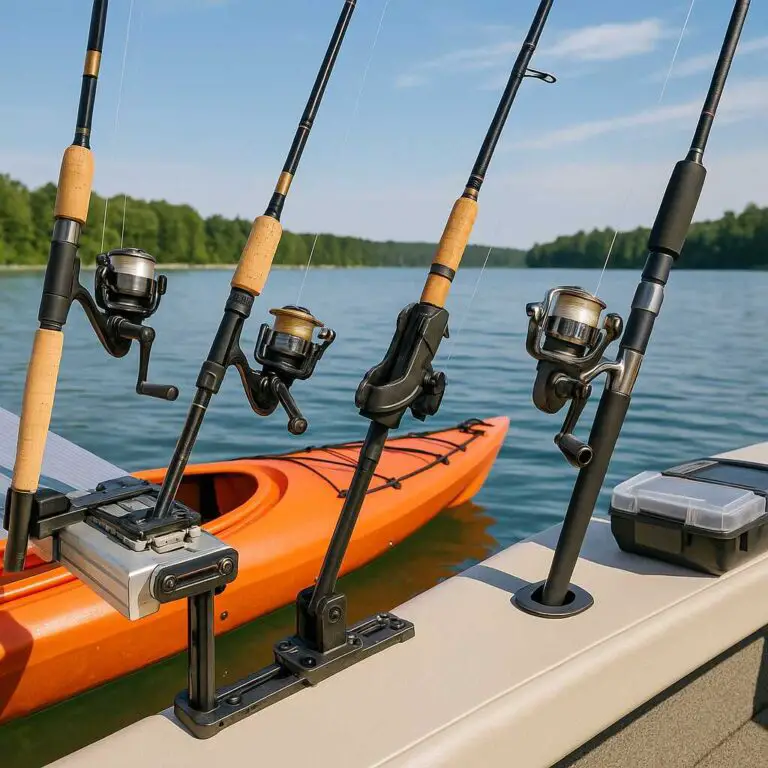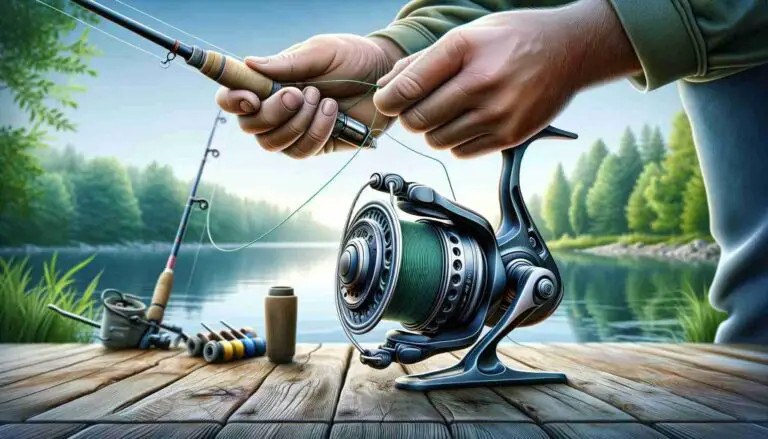Fishing for bass in cold water can be a rewarding challenge for anglers of all skill levels. As temperatures drop, bass behavior changes, requiring a shift in tactics and techniques. Understanding the intricacies of cold-water bass fishing can significantly increase your chances of success on the water.
Understanding Cold Water Bass Behavior
Bass are cold-blooded creatures, meaning their body temperature fluctuates with the surrounding water temperature. As water temperatures drop, bass become lethargic and less active. Their metabolism slows down, and they seek out areas of the water that offer warmth and comfort. Understanding these behavioral changes is crucial for pinpointing bass in cold water.
Water Temperature and Bass Activity
In cold water conditions, bass are most active when the water temperature ranges from 45°F to 55°F (7°C to 13°C). Below this range, bass become increasingly inactive, making them more challenging to catch. However, with the right techniques and strategies, anglers can still entice bites from cold water bass.
Preferred Habitat
During colder months, bass tend to migrate to deeper water where temperatures are more stable. Look for areas with structure such as rock piles, submerged logs, or deep drop-offs. Additionally, bass may seek out areas with warmer water influxes, such as shallow flats warmed by the sun or near power plant discharge areas.
Feeding Patterns
In cold water, bass feed less frequently and are more selective about their prey. They often target slow-moving, easy-to-catch forage such as crawfish, baitfish, and insects. Matching your bait selection to their natural prey can greatly increase your chances of success.
Essential Gear for Cold Water Bass Fishing
Before heading out on the water, it’s essential to have the right gear to tackle cold water bass effectively. From rods and reels to lures and clothing, each piece of equipment plays a critical role in your fishing success.
Rods and Reels
Opt for medium to medium-heavy spinning or baitcasting rods ranging from 6’6″ to 7’6″ in length. Pair them with high-quality reels with smooth drag systems capable of handling larger bass.
Line Selection
Choose fluorocarbon or monofilament fishing line in the 8- to 12-pound test range for cold water bass fishing. These lines offer excellent sensitivity and abrasion resistance, crucial for detecting subtle bites and maneuvering around structure.
Lures and Baits
When it comes to lure selection, opt for slow-moving presentations that mimic the behavior of natural prey. Jigs, soft plastic craws, jerkbaits, and suspending stickbaits are all effective choices for targeting cold water bass. Experiment with different colors and sizes to determine what the fish are most responsive to on any given day.
Clothing and Accessories
Dress in layers to stay warm and comfortable during cold weather fishing trips. Invest in quality thermal clothing, waterproof outer layers, and insulated gloves to combat chilly temperatures. Additionally, don’t forget essential accessories such as polarized sunglasses, a hat, and sunscreen to protect yourself from the elements.
Techniques for Cold Water Bass Fishing
Successfully targeting bass in cold water requires a more finesse-oriented approach compared to warmer months. Slow and methodical presentations are key to enticing bites from lethargic bass. Here are some effective techniques to try:
Jig Fishing
Jig fishing is a highly effective technique for targeting bass in cold water. Choose a jig with a natural-looking skirt and pair it with a matching trailer such as a soft plastic craw or creature bait. Cast your jig near structure and employ a slow, dragging retrieve to entice strikes from bottom-hugging bass.
Jerkbait Fishing
Jerkbaits are versatile lures that excel in cold water conditions. Opt for suspending or slow-sinking models and work them with short, erratic twitches to mimic injured baitfish. Pause frequently during your retrieve to allow the lure to suspend in the water column, triggering reactionary strikes from nearby bass.
Slow-Rolling Spinnerbaits
Spinnerbaits can be effective for covering water and enticing reaction strikes from cold water bass. Choose a spinnerbait with tandem willow leaf blades for maximum flash and vibration. Retrieve the lure at a slow, steady pace, keeping it just above the bottom to tempt sluggish bass into striking.
Finesse Techniques
In particularly tough conditions, finesse techniques such as drop shotting, shaky head fishing, and ned rigging can produce results when other methods fail. These subtle presentations are perfect for enticing finicky bass into biting during cold water periods.
Location Strategies for Cold Water Bass
Identifying the right locations to target bass in cold water is essential for a successful fishing outing. Focus your efforts on areas that offer warmth, cover, and easy access to food sources.
Deep Water Structure
Search for deep water structure such as points, humps, and ledges that provide bass with access to deeper, more stable water temperatures. These areas often attract concentrations of bass seeking refuge from the cold.
Sun-Warmed Shallows
On sunny days, shallow flats, rocky shorelines, and docks can warm up quickly, attracting bass seeking warmth. Target these areas with slow-moving presentations, focusing on any cover or structure present.
Current Breaks
In rivers and streams, bass may congregate near current breaks such as eddies, seams, and submerged rocks. These areas offer relief from the swift currents and can hold bass year-round, especially in cold water conditions.
Warm Water Discharges
Power plant discharge areas and other sources of warm water influxes can create localized hotspots for bass activity during cold weather. Be mindful of any regulations or access restrictions when fishing near industrial areas.
Tips for Cold Water Bass Fishing Success
Success in cold water bass fishing often comes down to attention to detail and persistence. Incorporate these tips into your fishing approach to maximize your chances of landing a trophy bass:
Downsize Your Presentation
In cold water, bass are less willing to expend energy chasing large prey. Downsize your baits and lures to match the smaller forage available and increase your odds of enticing bites from wary bass.
Fish Slow and Deliberate
Slow down your retrieve and focus on making precise casts to high-percentage areas. Cold water bass are less likely to chase fast-moving lures, so a methodical approach is essential for triggering strikes.
Be Patient and Persistent
Cold water bass fishing can be challenging, requiring patience and persistence to be successful. Stay focused, maintain confidence in your techniques, and be prepared to adapt to changing conditions throughout the day.
Pay Attention to Water Temperature
Monitor water temperature closely throughout your fishing trip and adjust your tactics accordingly. Bass behavior can change rapidly with fluctuations in temperature, so staying informed can help you stay one step ahead of the fish.
Practice Catch and Release
During colder months, bass are more vulnerable to stress and exhaustion. Practice responsible catch and release techniques to ensure the health and sustainability of bass populations for future generations of anglers to enjoy.
Conclusion
Fishing for bass in cold water presents unique challenges and rewards for anglers willing to brave the elements. By understanding bass behavior, employing the right techniques, and targeting high-percentage areas, you can increase your chances of success on the water.
Remember to dress appropriately, stay patient, and practice responsible fishing practices to maximize your enjoyment of this exciting pursuit. With dedication and perseverance, cold water bass fishing can provide unforgettable experiences and memories that last a lifetime. So bundle up, grab your gear, and head out to the water to put your cold water bass fishing skills to the test!








